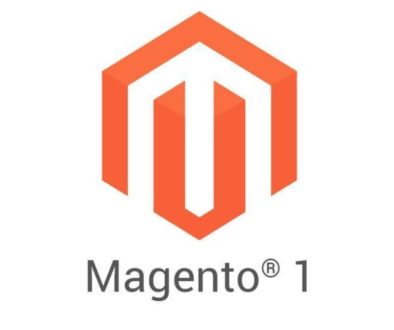eBay is Magento’s Secret Investor
 EBay Inc. revealed yesterday that it owns a 49% stake in Magento Inc., an e-commerce platform provider that focuses on small to mid-sized e-retailers. The online marketplace made the $22.5 million investment in March, but Magento’s filings at the time with the U.S. Securities and Exchange Commission did not reveal the investor.EBay Inc. chief technology officer Mark Carges noted the investment in the nearly 4-year-old company during a meeting Thursday with investment analysts. He said the investment helps eBay position itself as a resource for e-retailers, whether they conduct business on eBay.com or elsewhere. “Combined with the power of our platform innovations, we can offer retailers an unmatched advantage as an e-commerce partner,” Carges said. “We view our platform assets as enablers, not just for our business but for other retailers.”Magento controls the remaining 51% of the company, says Magento co-founder and CEO Roy Rubin. The technology provider does not plan to seek further investment. “We have enough working capital to pursue what we are doing and execute on our mission,” he tells Internet Retailer.Rubin says eBay’s investment in Magento wasn’t formally announced last year because neither party thought it was necessary to do so as Magento’s operations would remain mostly independent from eBay. “I think it was more that we wanted to control our own destiny,” Rubin says. “EBay is comfortable standing at our sidelines and watching us grow.”
EBay Inc. revealed yesterday that it owns a 49% stake in Magento Inc., an e-commerce platform provider that focuses on small to mid-sized e-retailers. The online marketplace made the $22.5 million investment in March, but Magento’s filings at the time with the U.S. Securities and Exchange Commission did not reveal the investor.EBay Inc. chief technology officer Mark Carges noted the investment in the nearly 4-year-old company during a meeting Thursday with investment analysts. He said the investment helps eBay position itself as a resource for e-retailers, whether they conduct business on eBay.com or elsewhere. “Combined with the power of our platform innovations, we can offer retailers an unmatched advantage as an e-commerce partner,” Carges said. “We view our platform assets as enablers, not just for our business but for other retailers.”Magento controls the remaining 51% of the company, says Magento co-founder and CEO Roy Rubin. The technology provider does not plan to seek further investment. “We have enough working capital to pursue what we are doing and execute on our mission,” he tells Internet Retailer.Rubin says eBay’s investment in Magento wasn’t formally announced last year because neither party thought it was necessary to do so as Magento’s operations would remain mostly independent from eBay. “I think it was more that we wanted to control our own destiny,” Rubin says. “EBay is comfortable standing at our sidelines and watching us grow.”
Rubin characterizes eBay’s involvement with Magento during the last year as “very hands-off” and doesn’t foresee that changing. “What they see in Magento is a passion for innovation,” he adds. “They are careful about getting too far inside and exerting influence that is inorganic to what we’re doing.”
Magento integrates PayPal, eBay’s payment services unit, into its open-source e-commerce platforms as a payment option for online retailers. It is one of multiple forms of payment that e-retailers can choose to accept within the Magento framework, and Rubin says that eBay’s stake in the company will not change that. None of Magento’s e-commerce platforms currently integrate with eBay’s marketplace.
The investment revelation came on the heels of Magento’s own announcement earlier this week that it will release Magento Go, an open-source e-commerce platform aimed at very small e-retailers that are just getting started with e-commerce. Magento Go is the company’s first cloud-based e-commerce platform, meaning it is hosted online, and will be available to e-retailers at the end of this month. Service plan pricing is based on the number of products listed, traffic volume and required bandwidth, and starts at $15 a month.
Rubin says the Go platform, like the rest of its products, does not come with a built-in integration to sell on eBay.com. Magento’s deployed e-commerce platform products, which e-retailers install and operate using their own networks, range from free to starting prices of just less than $13,000 per year.
Two Internet Retailer Top 500 retailers say they use Magento technology. Tool King LLC, No. 331 in the Top 500 Guide, has been a Magento client since 2009. CoffeeForLess.com, No. 444, also uses the technology provider.
Other e-retailers that recently began using the platform include RadioFlyer.com, TeaFlection.com andMicroscope.com.
Magento says more than 90,000 online merchants use its platforms.


